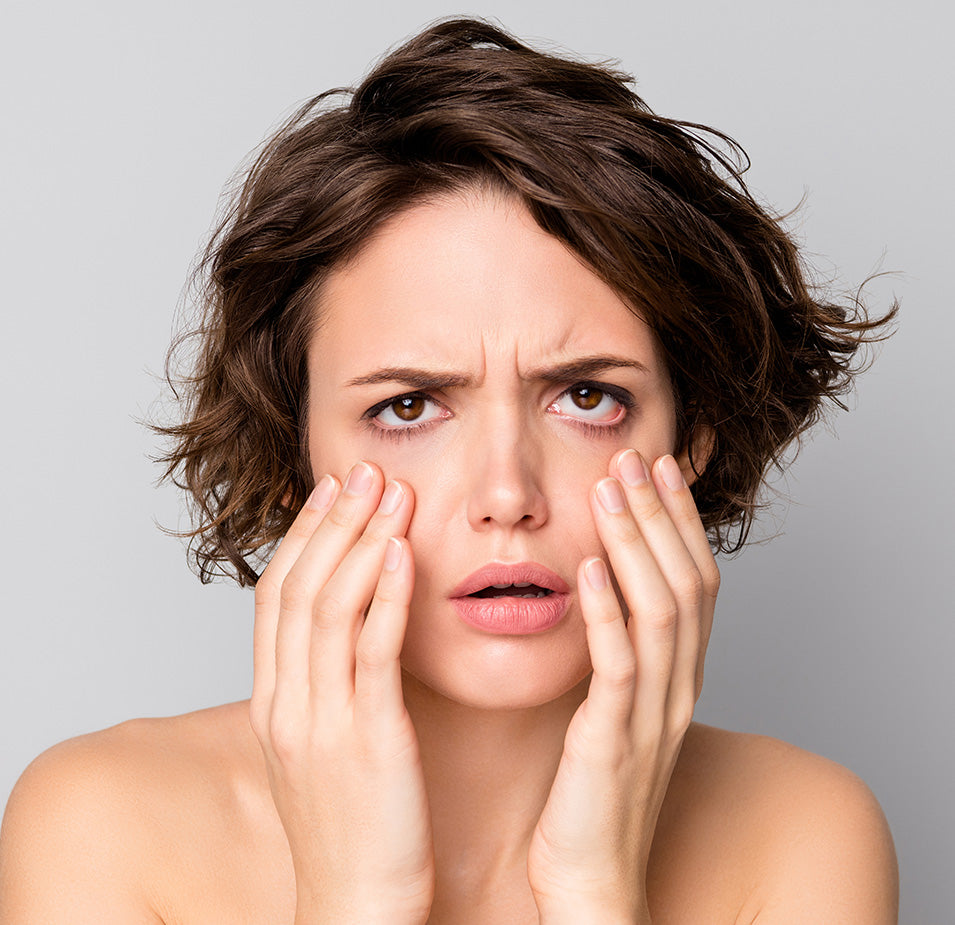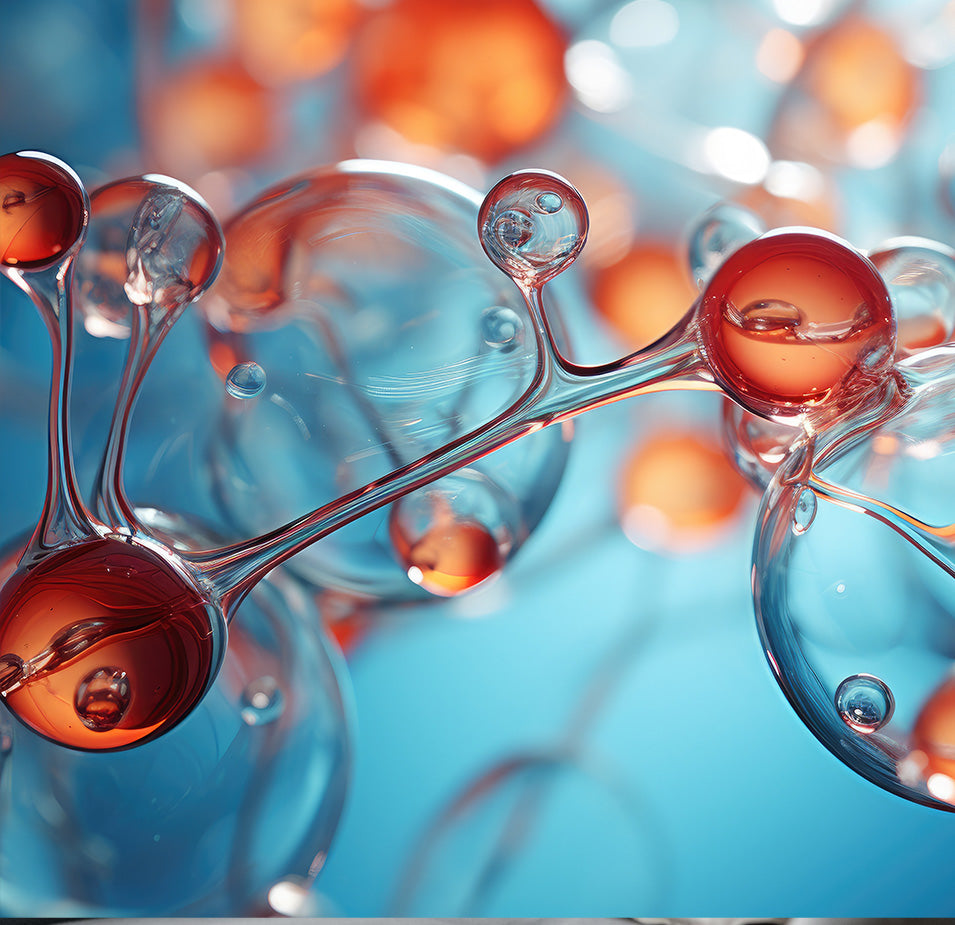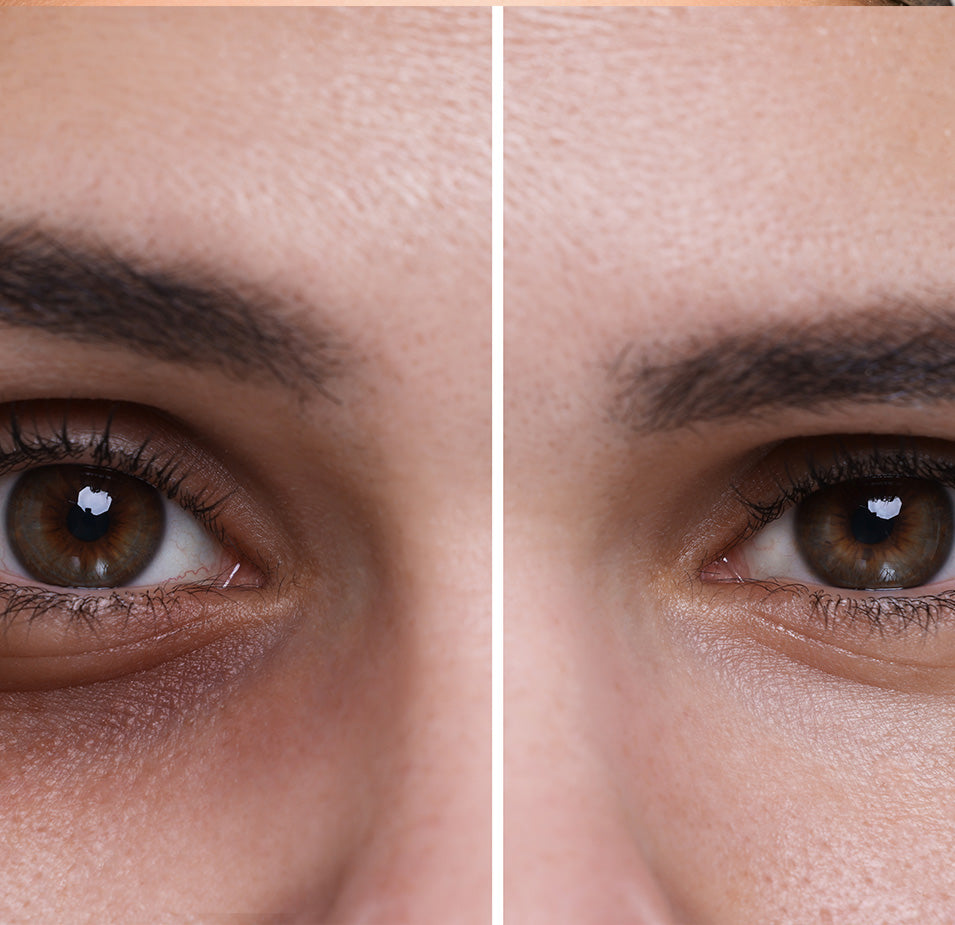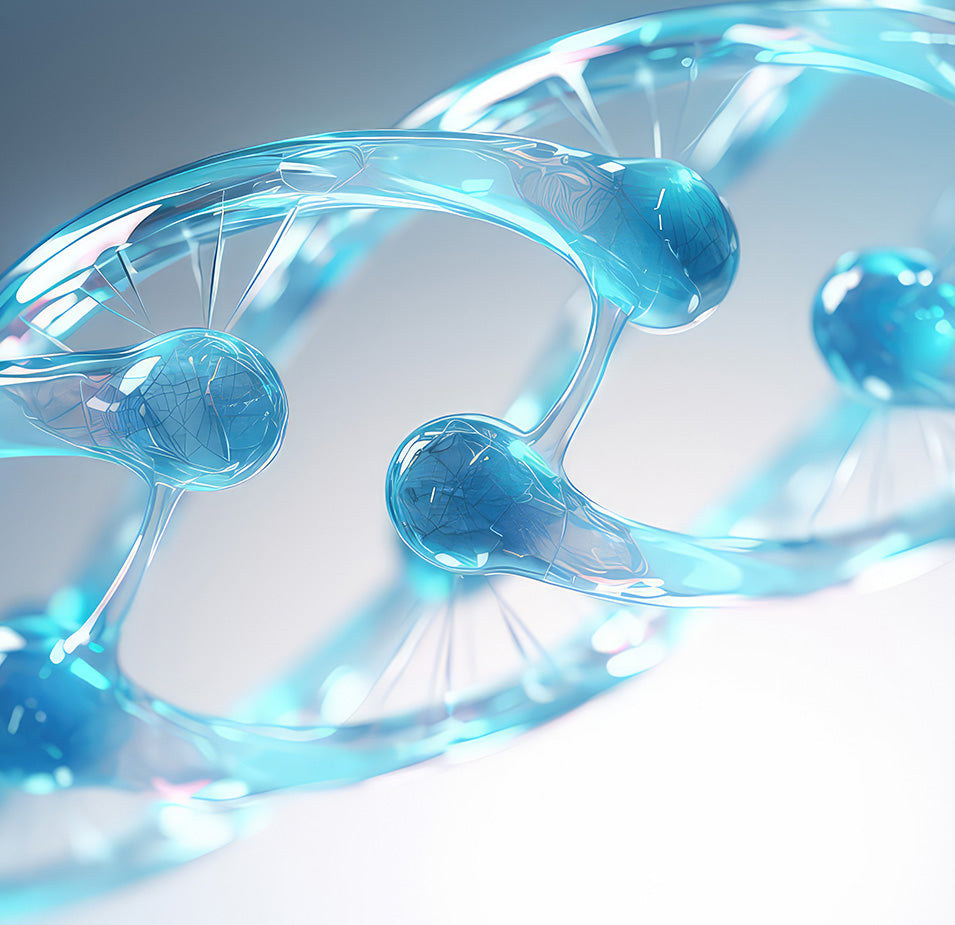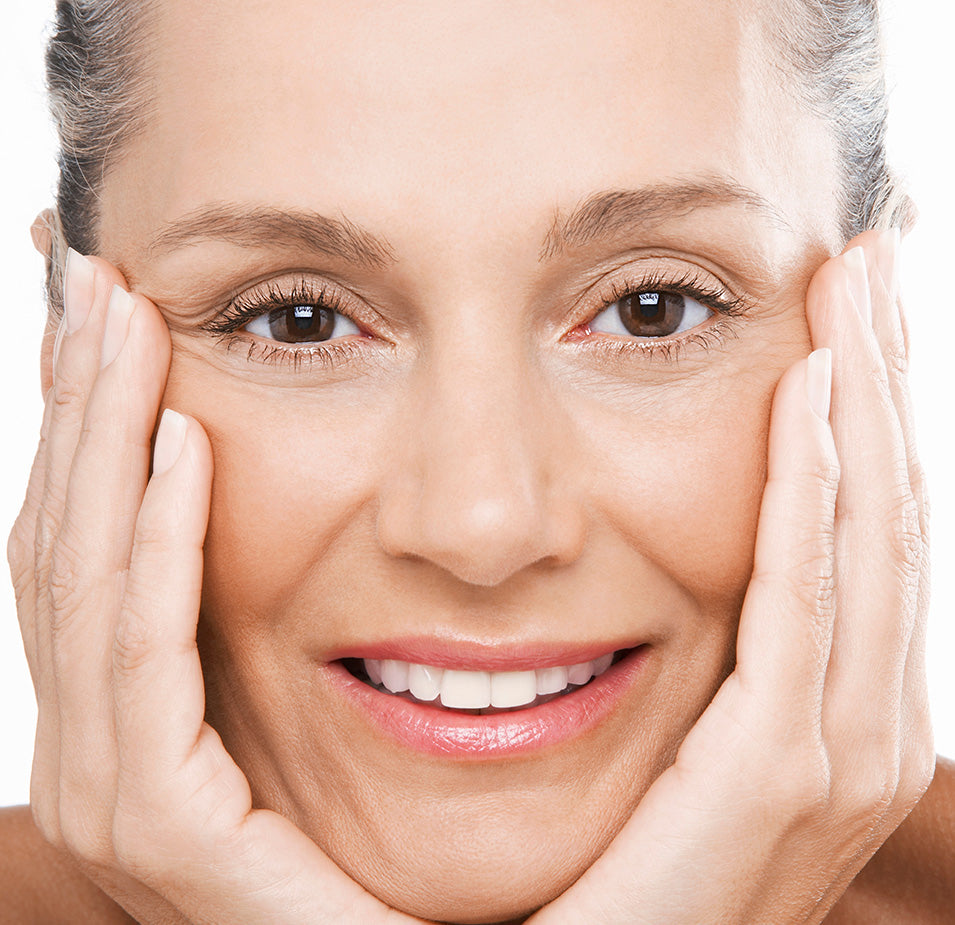
When you hear the word “melatonin,” chances are that a good night’s sleep comes to mind. But melatonin is more than just a sleep aid supplement. New research suggests that melatonin can help support healthy skin, making you look well-rested without the urge to hit snooze.
|
The Basics Melatonin is a crucial hormone that is naturally present in the body, including the skin cells. Your body can use melatonin applied to the skin as a treatment to promote:
|
What Is Melatonin?
Melatonin is a natural hormone produced by the human body to maintain your sleep-wake cycle, also known as your circadian rhythm. The hormone is secreted in the brain as well as the skin cells.
Many people take melatonin as a dietary supplement to promote healthy sleeping habits, but the hormone is also gaining popularity as an anti-aging ingredient in skincare products.
You might be wondering why melatonin is needed in supplement form if it’s already generated in the body. The answer is simple: over time, the body’s production of various hormones, enzymes, and chemicals slows down.
One study posited that this decline in melanin production may be a contributing factor to the early onset of physical aging in the skin. The study tested melatonin in 946 people between the ages of 20 and 69, finding that melatonin levels were progressively lower the older subjects were. The loss of melatonin was correlated with lower hydration, spot pigmentation, and other signs of aging.
By using melatonin as a topical skin treatment or supplement, you can intervene in this process and extend your skin’s longevity.
What Are the Benefits of Melatonin For Skin?
Sufficient melatonin is a key component of skin health. As a natural part of our body’s cell regulation processes, melatonin works with our system to reverse damage, slow the process of aging, and promote well-nourished, beautiful skin.
Boosting Hydration
Along with melatonin, elastin and collagen help keep the skin smooth, firm, and moisturized. Like melatonin, elastin and collagen content in the body are diminished over time.
Melatonin intake can help offset the loss of elastin and collagen, improving the skin’s moisture-retaining capacity and helping it stay well-hydrated.
A study of postmenopausal women between 46 and 67 showed multiple positive effects of melatonin on the skin, including:
- Improved skin elasticity
- Increased sebum production
- Improved moisture levels
The study tested both topical and oral administration of melatonin, finding similar benefits in both.
Supplementing with melatonin can help your skin retain moisture. This makes it a useful and effective skincare ingredient, particularly as part of a winter routine when skin is more susceptible to harsh, dry weather.
Preventing Early-Onset Aging
Everyone knows that excessive exposure to UV rays can lead to the premature onset of wrinkles, crow’s feet, pigmentation or skin tone defects, and fine lines. Melatonin can help counteract this process.
Melatonin inhibits the DNA damage brought about by sun exposure. That’s because melatonin is a natural antioxidant, which reverses cellular damage by neutralizing free radicals (reactive and potentially damaging molecules) that the skin develops in the sunshine. This makes melatonin a potent agent for preventing or reversing the signs of aging that would normally result from solar radiation.
One of the common results of excessive sun exposure is skin pigmentation or dark spots. Pigmentation issues can also be caused by disorders like melasma or acne scarring. Melatonin intake, both as an oral supplement and applied directly to the skin, is considered a highly safe and effective treatment for managing unwanted pigmentation. The compound works by stimulating other antioxidative enzymes in the skin while inhibiting the activity of receptors that are responsible for hyperpigmentation.
Thanks to its antioxidant properties, melatonin can also delay the onset of premature aging in smokers. Scientists found statistical evidence that melatonin can ward off free radicals produced by cigarette smoking, reversing DNA and mitochondrial damage. (It should be noted that the drastic and irreversible negative effects of smoking on skin health are well-documented.)
By battling the forces that most commonly produce wrinkles and other signs of aging, melatonin keeps the skin looking smooth and even-toned.
What Makes Melatonin So Good for Anti-Aging?
Some scientists believe that naturally occurring substances like melatonin are stronger than other anti-aging ingredients. This theory is based on numerous factors:
- The body’s absorption rate of natural ingredients may be higher than that of synthetic ingredients.
- When it comes to reversing UV damage, melatonin is superior to other anti-oxidative ingredients like vitamin E and vitamin C because it is already present in the skin, thus increasing uptake.
- Naturally occurring hormones like melatonin have receptors that bind the active ingredient to the inner skin cells, allowing the ingredient to exert the desired action right away at a more intrinsic level. Other compounds may not have receptors and thus would not have the same highly targeted and potent effects.
Clinical studies have conclusively demonstrated the effectiveness of melatonin for promoting the revitalization and regeneration of skin cells. Once applied, melatonin absorbs rapidly into the external skin layers for an instant lift and visual improvement.
How to Take Melatonin For Your Skin
There are a few tricks you can use to maximize the benefits of melatonin for your skin, including the time at which you take it, the method in which it’s applied, and other products to combine it with.
To achieve the best results of melatonin intake for skincare, use the ingredient topically as a serum or ointment (rather than popping an oral supplement, which is better for facilitating improved sleep).
Experts recommend applying melatonin before bedtime, as our natural secretion of the hormone is at its peak in the evening and nighttime hours. The human body is naturally wired to repair and rejuvenate overnight, so with the extra boost of a well-rounded evening skincare regimen, the body’s efforts can be potentiated.
The anti-aging effects of melatonin can be enhanced significantly if combined with other anti-aging ingredients, such as vitamin C and retinol. It also works well eat when combined with hyaluronic acid to improve the skin’s elasticity and moisture content.
Finally, applying melatonin along with your sunscreen can add an extra layer of protection against UV damage and risk of photoaging. This is especially important if you spend a lot of time outdoors.
FAQs
Is melatonin safe for skincare?
Melatonin is generally safe and highly effective. Some evidence suggests that melatonin may activate melanocytes when applied to the skin, which can promote melanin synthesis and cause a slight darkening of the skin tone. If skin tone changes are a concern for you, you may want to reconsider using melatonin in your skincare formulation.
Is melatonin vegan?
Melatonin is mainly extracted from animals, but synthetic formulations of melatonin may be vegan. If you want to steer clear of animal products, check the label of your formulation to ensure that the melatonin you’re using is vegan.
References
- Kleszczynski, K., & Fischer, T. W. (2012). Melatonin and human skin aging. Dermato-endocrinology, 4(3), 245-252.
- Nanzadsuren, T., Myatav, T., Dorjkhuu, A., & Byamba, K. (2020). Association between serum melatonin and skin aging in an urban population of Mongolia. Journal of Cosmetic Dermatology, 19(6), 1501-1507.
- Fischer, T. W., & Elsner, P. (2001). The antioxidative potential of melatonin in the skin. Current Problems In Dermatology, 29, 165-174.
- Reiter, R. J., Tan, D. X., Manchester, L. C., & EL SAWI, M. R. (2002). Melatonin reduces oxidant damage and promotes mitochondrial respiration: implications for aging. Annals of the New York Academy of Sciences, 959(1), 238-250.
- Sagan, D., Stepniak, J., Gesing, A., Lewinski, A., & Karbownik-Lewinska, M. (2017). Melatonin reverses the enhanced oxidative damage to membrane lipids and improves skin biophysical characteristics in former-smokers–A study in postmenopausal women. Ann Agric Environ Med, 24(4), 659-666.
- Day, D., Burgess, C. M., & Kircik, L. H. (2018). Assessing the potential role for topical melatonin in an antiaging skin regimen. Journal of drugs in dermatology: JDD, 17(9), 966-969.
- Nautiyal, A., & Wairkar, S. (2021). Management of Hyperpigmentation: Current Treatments and Emerging Therapies. Pigment Cell & Melanoma Research.

